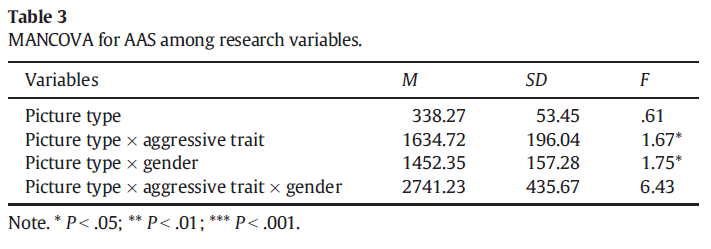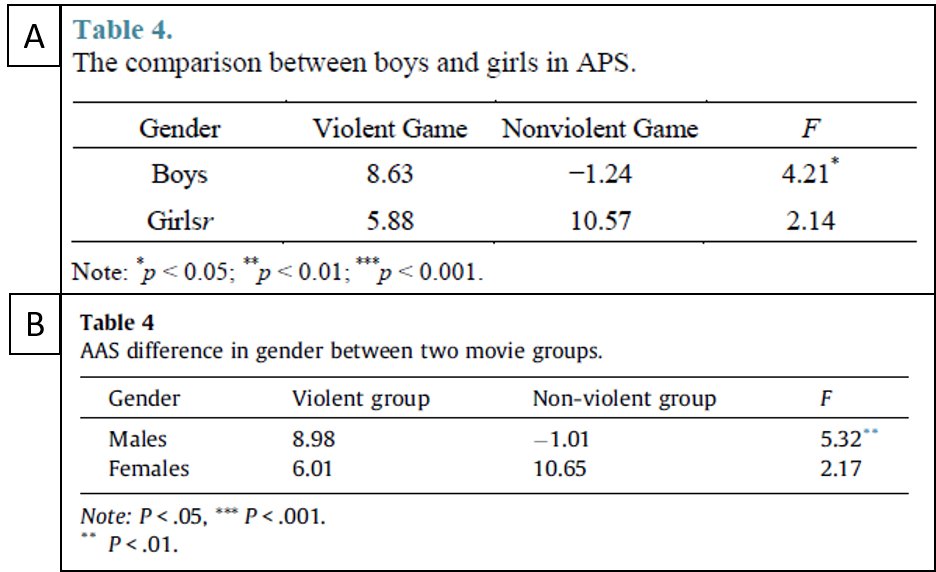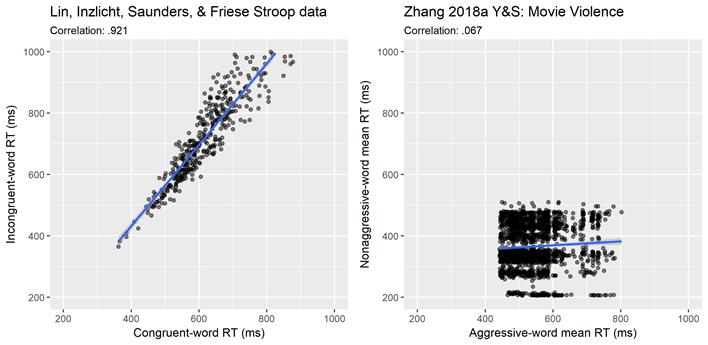Eighteen months ago, I tried reporting him to his institution. A year ago, I tried asking editors for retractions. Today, he’s publishing faster than ever. http://crystalprisonzone.blogspot.com/2021/01/i-tried-to-report-scientific-misconduct.html
This is the story of a psychologist studying the effects of violent media. He can run thousands of participants through his experiments every year, but he can’t get the numbers to add up in his ANOVA tables.
The summary statistics are also surprisingly similar, even for experiments run years apart in different populations.
I tried asking him for his data. He said only the study team could see the data.
I asked the American on the study team if they could see the data. They couldn’t.
Was that odd? “No, it’s just a China thing.”
I asked the American on the study team if they could see the data. They couldn’t.
Was that odd? “No, it’s just a China thing.”
I asked his institution to investigate. He sent me his raw data.
I knew what data on this task was supposed to look like (left panel). His data looked nothing like it (right panel).
I knew what data on this task was supposed to look like (left panel). His data looked nothing like it (right panel).
His institution came back with a verdict: “He’s just very bad at statistics.”
They did not comment on the recycled tables or the suspicious raw data. I pressed them for comment. They said this was a matter of academic dispute.
They did not comment on the recycled tables or the suspicious raw data. I pressed them for comment. They said this was a matter of academic dispute.
I tried asking journals for retractions. One retracted his articles in two months flat. Others are still very gradually going through the steps. https://retractionwatch.com/2019/12/06/journal-retracts-two-papers-linking-exposure-to-violence-to-aggressive-behavior/
One journal decided to correct, reporting that what had initially been described as an experiment was actually a non-experimental design. The correction does not mention the suspicious features of the raw data. https://onlinelibrary.wiley.com/doi/10.1002/ab.21946
Some Twitter users have lampooned this decision to correct: https://twitter.com/maltoesermalte/status/1348553812706025472
In the meantime, he’s still publishing, and faster than ever before -- four pubs and a preprint in the past 6 months. My attempts to get the raw data from these new studies have ended in failure. One editor explicitly refused to enforce data-sharing per the Code of Ethics.
It turns out, even when you have the raw data, it takes a herculean effort to get flawed research retracted, and it happens at the whim of the Editor in Chief. I don't know what do to with an uncooperative EiC. Complain about it on blogs and Twitter, I guess!
So concludes the progress report for my experiment in scientific self-correction.
If anybody has a connection at Children & Youth Services Review, tell them to enforce data-sharing rules.
If anybody has a connection at Children & Youth Services Review, tell them to enforce data-sharing rules.
I'll have more to say about the correction at Aggressive Behavior on a future date.

 Read on Twitter
Read on Twitter





